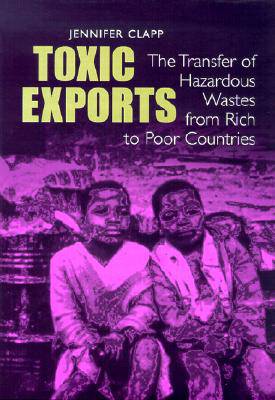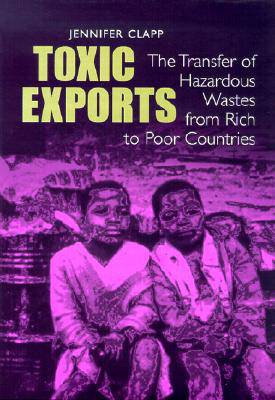
- Retrait gratuit dans votre magasin Club
- 7.000.000 titres dans notre catalogue
- Payer en toute sécurité
- Toujours un magasin près de chez vous
- Retrait gratuit dans votre magasin Club
- 7.000.0000 titres dans notre catalogue
- Payer en toute sécurité
- Toujours un magasin près de chez vous
Toxic Exports
The Transfer of Hazardous Wastes and Technologies from Rich to Poor Countries
Jennifer ClappDescription
In recent years, international trade in toxic waste and hazardous technologies by firms in rich industrialized countries has emerged as a routine practice. Many poor countries have accepted these deadly imports but are ill equipped to manage the materials safely. For more than a decade, environmentalists and the governments of developing countries have lobbied intensively and generated public outcry in an attempt to halt hazardous transfers from Northern industrialized nations to the Third World, but the practice continues.In her insightful and important book, Jennifer Clapp addresses this alarming problem. Clapp describes the responses of those engaged in hazard transfer to international regulations, and in particular to the 1989 adoption of the Basel Convention. She pinpoints a key weakness of the regulations--because hazard transfer is dynamic, efforts to stop one form of toxic export prompt new forms to emerge. For instance, laws intended to ban the disposal of toxic wastes in the Third World led corporations to ship these byproducts to poor countries for "recycling." And, Clapp warns, current efforts to prohibit this "recycling movement" may accelerate a new business endeavor: the relocation to poor countries of entire industries that generate toxic wastes.Clapp concludes that the dynamic nature of hazard transfer results from increasingly fluid global trade and investment relations in the context of a highly unequal world, and from the leading role played by multinational corporations and environmental NGOs. Governments, she maintains, have for too long failed to capture the initiative and have instead only reacted to these opposing forces.
Spécifications
Parties prenantes
- Auteur(s) :
- Editeur:
Contenu
- Nombre de pages :
- 192
- Langue:
- Anglais
Caractéristiques
- EAN:
- 9780801438875
- Date de parution :
- 08-08-01
- Format:
- Livre relié
- Format numérique:
- Genaaid
- Dimensions :
- 162 mm x 240 mm
- Poids :
- 444 g

Les avis
Nous publions uniquement les avis qui respectent les conditions requises. Consultez nos conditions pour les avis.






